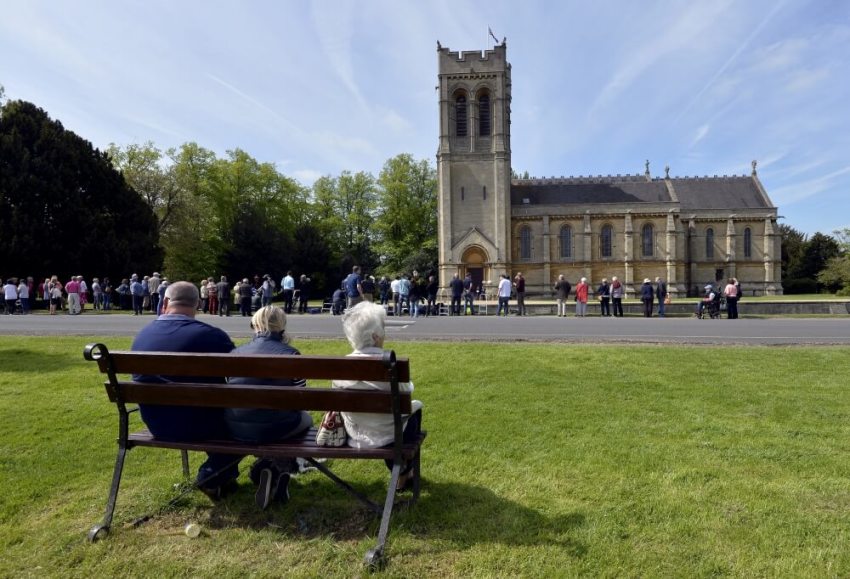Over 360 CofE churches at risk of being closed by 2026, church preservation group warns

Over 350 Church of England churches are at risk of being closed or demolished within the next five years, the church preservation charity Friends of Friendless Churches has warned.
Based on a report released by the Church Commissioners in July, the FCC estimates that between 131 and 368 churches, including Grade I and Grade II historic buildings, could be sold or torn down due in part to the loss of tithes and donations while churches were forced to remain closed because of the government's response to COVID-19.
"A significant strategic concern for the Church ... as a result of COVID-19 is that the pandemic will have a negative impact on the infrastructure that keeps churches open ... If many churches do not or cannot sustainably re-open, then more closures might be needed sooner rather than later," the report released by the Church Commissioners, the body that administers the CofE’s property, states in part.
While the CofE said the estimate of 368 church closures is high and a “worst-case scenario,” the startling figure is based on a survey that asked dioceses to give an estimate of the number of closures they're expecting to initiate over the next two to five years.
Twelve dioceses responded that each was "planning a light number of closures" of up to five; nine estimated between six and 12 closures, nine were planning between six and 12 closures, and five were planning up to 40.
Among these, it added: "Four dioceses in our survey were thinking about shutting 152 churches over the medium term (five years), which would represent a significant increase on recent trends."
This rate of CofE church closures "would be up to eight times faster than before the pandemic," The U.K. Times reported.
The Church of England has an estimated 16,000 churches, a significant drop from its height of 18,666 in 1941, according to the report. The authors blamed the downward trend on a "strong cultural shift away from the Anglican faith" and fewer people attending its worship services. Others might contend that it's also a reflection of the secularization of the population and Christians leaving the CofE for Catholic or evangelical churches.
During the 1990s, church closure remained consistent at between 20 to 25 per year, either because village congregations were considered to be too small or were no longer able to maintain the expense of ongoing maintenance.
Between 1969 and 2021 the CofE let go of 2,013 churches, the report said. This was done by giving the buildings to other denominations or selling them to be turned into housing, shops, offices or community centers. Over 500 of those churches were demolished, however.
Earlier this year, the CofE's 42 diocesan bishops were accused of living opulent lifestyles financed by the denomination while leaving village churches and their parishioners to flounder.
The spate of church closures has affected numerous churches among all denominations in England. According to The Gatestone Institute, from 2001-2017, as many as 500 churches in London had been closed and turned into private homes.
Statistics from the NatCen Social Research Institute showed that between 2012 and 2014, the number of Britons who identified as Anglicans fell from 21% to 17% of the population, representing a decrease of 1.7 million people. Data from British Social Attitudes surveys also showed that those who identified as religiously unaffiliated in England and Wales outnumbered Christians.
Among the concerns that parishioners and church preservation organizations have raised is that local residents would no longer be consulted before a diocese closes a church.
“Parish churches are public buildings, originally built and endowed locally and all members of the parish, whether practicing Anglicans or not, are entitled to be heard and considered properly. But the Commissioners propose to reduce the rights of the public in this instance,” FCC said in a Twitter thread.
The church preservation charity added: "Historic churches are the essence of placemaking. It should not be fast or easy to close a place of worship. Their futures should be assessed by people with appropriate expertise and there should be a reasonable opportunity for the whole community to contribute its views. There also seems to be a failure to appreciate the relationship the Church has with the State, esp. in terms of public money it has received to repair its buildings; and the 70% State funding of the CCT to protect historic churches for the benefit of the nation."
In response to concerns, the Church Commissioners added: "To the Church community, church closure and re-use is often seen as a failure, which is partly why more are not closed, ... Closure can be traumatic for a community, but in the language of public policy it is a transition, rather than a death."



























